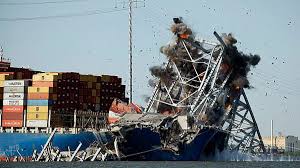The Indian government has confirmed that both the sunken MSC ELSA 3 and the fire-afflicted MV Wan Hai 503, foreign-flagged vessels involved in recent maritime incidents off Kerala’s coast, are covered under robust insurance policies. This assurance from Ramachandran, Secretary for Ports, Shipping and Waterways, implies that the financial ramifications of the environmental damage and associated costs stemming from these shipping disasters will be mitigated through compensation.
This clarity on insurance coverage offers a crucial layer of financial resilience for the affected coastal communities and the region’s fragile marine ecosystem, signalling a pathway towards recovery and potentially more equitable outcomes in such unforeseen calamities. The confirmation of insurance coverage comes in the wake of two major shipping incidents that struck in quick succession following the onset of the Southwest monsoon. The Liberian-flagged cargo ship MSC ELSA 3, carrying hazardous cargo including over 640 containers and more than 400 metric tonnes of fuel, tragically sank on May 25th, approximately 30 kilometres off Alappuzha, Kerala. This vessel, on a short voyage between Vizhinjam and Kochi, began tilting on Saturday, May 24th, before succumbing to the Arabian Sea by Sunday morning. All 24 crew members were promptly rescued by the Indian Coast Guard and Navy, averting a human catastrophe.
The immediate aftermath of the MSC ELSA 3 sinking saw plastic pellets and shipping containers washing ashore along the Kerala coast, with debris even reaching parts of Tamil Nadu. The Kerala Government swiftly declared the incident a “State-Specific disaster,” recognising the potentially severe environmental, social, and economic impact on a region renowned for its vibrant tourism, rich marine biodiversity, and high seafood consumption. This declaration underscored the urgency of the situation, prompting intensive surveillance and oil spill mitigation efforts by the Indian Coast Guard, deploying air operations and specialised dispersant chemicals to contain the environmental fallout.
Adding to the maritime challenges, the Singapore-flagged Merchant Vessel Wan Hai 503 reported an onboard explosion on June 9th while en route from Colombo, Sri Lanka, to Mumbai, India, off the Kerala coast. This vessel, carrying over 2,128 metric tonnes of fuel and hundreds of containers, some laden with hazardous cargo, quickly became engulfed in flames. The Indian Navy and Coast Guard mounted a swift response, rescuing 18 of the 22 crew members and engaging in firefighting operations for over a week, eventually providing support for salvage and towing of the vessel. The Director General of Shipping has since informed the Kerala High Court that the adrift containers from MSC ELSA 3 pose a significant environmental risk, citing the presence of Class 4.3 dangerous goods like calcium carbide, and confirming the potential for hazardous chemicals from the Wan Hai 503, including lithium batteries and flammable resin, to severely impact the marine ecology.
The economic ramifications for Kerala’s vital fishing industry are profound. With the monsoon season already limiting fishing activities, these consecutive disasters have led to temporary fishing bans and a looming decline in consumer confidence in local seafood. Fisherfolk have reported substantial damage to their nets, sometimes costing several lakhs of rupees, due to submerged containers from the MSC ELSA 3. While insurance covers the ships and their cargo, the direct impact on fishing gear and the broader loss of livelihood for individual fishermen and women, who are cornerstones of the state’s coastal economy, often remains a complex area for comprehensive compensation under existing frameworks.
The confirmation of insurance coverage, while a welcome relief, also prompts a deeper examination of global maritime safety and accountability. The swift rescue of crew members in both incidents highlights effective emergency response, yet the environmental degradation underscores the need for more stringent regulations on vessel age, cargo declaration, and hazardous material transport. International conventions on civil liability and pollution damage exist to ensure compensation, often involving Protection and Indemnity (P&I) Clubs that cover pollution damage. However, the complexities of quantifying long-term ecological damage and securing equitable compensation for all affected stakeholders, especially vulnerable coastal communities, remain a challenge.
As Kerala navigates the path to recovery, leveraging these insurance covers becomes paramount. Beyond immediate clean-up and economic relief, these incidents serve as a powerful reminder of the shared responsibility in ensuring sustainable maritime commerce that minimises environmental footprint and protects human livelihoods. It reinforces the urgent need for international collaboration to refine regulatory frameworks, enhance marine environmental protection, and establish more robust mechanisms for accountability and compensation that genuinely serve the interests of communities striving for zero net carbon, eco-friendly, and equitable coastal cities.
Also Read: MSC ELSA 3 Disaster Sparks Environmental Crisis Off Kochi Coast


